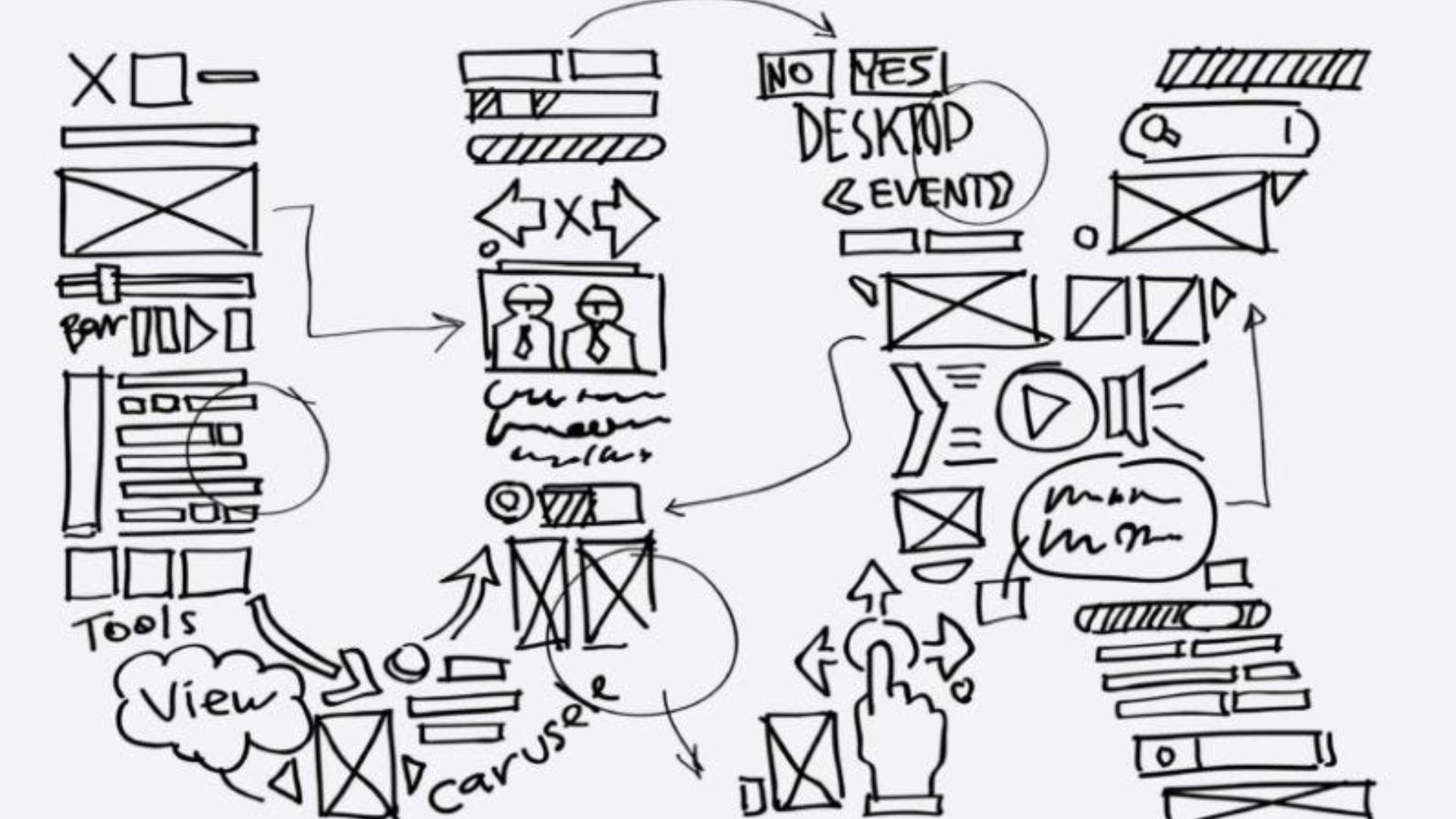
The labor market is dynamic, with a growing number of people pursuing occupations focused on technology. Possessing certain job abilities will boost your chances of success in whatever sector you pick. It might be useful to know which abilities are in the greatest demand while choosing a professional path.
Every profession demands a certain set of technical and workplace abilities, and you probably already have a strong skill set from your training or previous employment. Employers often place a high value on high-income talents, which might facilitate a career shift or even industry.
You might wish to look for methods to showcase your high-paying abilities as you look to progress in your work or change the direction of your career. You might be able to use these abilities to help you meet your wage objectives, depending on the kind of work you choose to pursue. To taste success you have to develop the most in-demand job skillsand here we have mentioned the 16 most in-demand skills for your successful future.
1. Data Analysis
The top two skills predicted by the World Economic Forum's Future of Jobs Report are analytical thinking and innovation. Businesses in all sectors need more staff members who can gather, analyze, and communicate data that can help them solve businesschallenges as they depend more and more on information to make choices.
A variety of technologies, such as Microsoft Excel, Google Sheets, SQL, Tableau, R, or Python, can be used by those with data analysis skills.
2. Cloud Computing
Due to the growing number of businesses shifting their operations to the cloud-a worldwide network of distant servers-cloud computing skills are in high demand. To make it simple for end users to store files and back up their data, cloud engineers are in charge of creating and maintaining these cloud computing systems.
Technical proficiency is needed for migrations, and it's also necessary to negotiate agreements with cloud service providers, guarantee data security, and apply best practices all along the way.
3. Sales Leadership
Since most businesses rely on sales to remain successful in the end, having expertise in leading sales teams will open doors for you across several sectors. The capacity to close commercial agreements and mentor others is known as sales leadership.
Prominent sales executives possess a strategic mindset, assessing problems from several angles and spotting trends that may be enhanced or places where income can be increased. The capacity for motivation, a strong desire to produce outcomes, strong mentoring and team-building abilities, and outstanding communication skills are all essential traits of high-achieving sales executives.
4. Translation
As more businesses produce localized content for international markets, there are more and more options for translators to find employment. Being proficient in both the language you're translating into and the language you're translating from is essential for success as a translator.
The cultural distinctions between the nation or nations where the source language and the target language are spoken must also be understood. Living in a nation where the language you intend to translate into is spoken might help you become a better translator faster.
5. Software Development
Industries require individuals with the skills to build, maintain, and improve their technical systems as they rely more and more on technology to grow their commercial capabilities. Software engineers and DevOps personnel develop, oversee, and manage an organization's technological infrastructure.
Individuals with expertise in software engineering or DevOps may be familiar with coding languages like Python, Java, or C++ and may utilize technologies like Docker, Jenkins, or Kubernetes.
6. Project Management
There is an increasing demand for people who can integrate people, technology, and problem-solving abilities, whether they are managing people or robots.
Business AI technologies are currently unable to handle high-level monitoring, create strategic objectives, or prioritize tasks and resources. However, those in these positions have unmatched chances to use AI to help with research, scheduling, testing, compliance, and prototyping, among other tasks.
7. Communication Skills
One of the most important aspects of the corporate skill set is effective communication. People who can spot message possibilities and close communication gaps across firms are more in demand than ever.
Those who can decipher data analytics findings and convey them to decision-makers in plain language will find greater employment opportunities. Additionally, when natural language communication with robots becomes the norm, businesses need people who can interact with them in a way that maximizes their output.
8. Interpersonal Networking
The ability to form friendships with the appropriate people will always help one succeed. Creating a network of people who can support our goals and aid in our personal growth is an essential ability.
This implies that in 2024, as technology creates new avenues for growth and innovation for those who are willing to take advantage of them, cultivating the capacity to forge relationships based on mutual trust and shared objectives will be more important than ever.
9. Problem-solving And Critical Thinking
A competent problem solver will typically be able to recognize an issue and follow a set of procedures to create a workable solution.
Those who can solve problems on their own, from entry-level workers to leaders, frequently develop into more critical thinkers, which improves overall job performance. Having the ability to critically think helps your staff apply reason and logic to problems more effectively.
10. Collaboration And Teamwork
It might be challenging to put cooperation and teamwork abilities to use in an environment where many workers work remotely or on hybrid schedules, yet these skills are more crucial than ever.
Forming groups of people with different experiences might make your company more creative, efficient, and able to solve challenges more quickly.
11. Emotional Intelligence
In addition to being conscious of how others are feeling and the impact you and others have on them, emotional intelligence includes the capacity to comprehend and regulate your own emotions and reactions. Emotional intelligence is demonstrated by traits like sensitivity, self-awareness, empathy, and effective listening.
Workers with strong emotional intelligence can inspire other team members, settle disputes amicably or prevent them entirely, and contribute to the development of a productive workplace.
12. Automation
Automation experts create software that optimizes and mechanizes procedures to get results with the least amount of human involvement, assisting businesses in cutting expenses.
Writing automated tests and creating test frameworks, coding in languages like Python, computer science, and configuration management (CM) software are among the ideal knowledge and abilities. Automation professionals often make between $40 and $110 per hour.
13. Ux Design
The secret to making the digital world functional for people is user experience design. There are more and more prospects for professional advancement in this area.
To satisfy the growing demands of business, entering this potential field requires the necessary skills and training. You may follow UX professionals, network, or enroll in an online degree program to get an advantage while honing your UX design talents.
14. Industrial Design
The professional discipline of creating goods that millions of people use worldwide, such as automobiles and cell phones, is known as industrial design. Before a product is released into the market, it usually goes through several design revisions.
Numerous design and functionality decisions are usually made throughout these product revisions. During these stages, employers typically want the expertise of an industrial designer. Industrial designers pay close attention to a product's look and functioning, but they often participate in much more of the development process.
15. Adaptability
Adaptability is crucial since, as technology develops, businesses that adopt new procedures can frequently maintain their competitiveness in the market. Employers are looking for workers with the capacity to adapt well and grow into leadership positions.
The capacity to adjust to succeed is known as adaptability. Workers in leadership positions typically handle atypical circumstances without clear guidance. They have to have the confidence to make tough judgments by learning to depend on their judgment. Learning new things quickly indicates that you are adaptable. You may practice problem-solving in a variety of situations and try new things to hone your adaptation abilities.
16. Marketing
The marketing team is not the only group that requires marketing expertise. These days, everyone needs marketing abilities, from HR to sales, R&D, and project management experts, as these positions all include promoting or presenting a new concept or solution to others.
Furthermore, every company has to be able to create compelling tales as the global market gets more interconnected and competitive.
How To Acquire In-Demand Skills?
There are several methods to get expertise in these fields and make yourself more appealing to employers if you don't have the in-demand abilities. There are a few different methods you may broaden your skill set, even though going to school and earning a degree is one of the most popular ways to gain new talents.
Take An Online Course
Online courses allow you to complete them at your speed and come in several affordable or free alternatives. For instance, lessons are available on Udemy for $14.99. Stanford offers a wide range of free courses in subjects including blockchain basics, machine learning, and database architecture. If you'd rather browse stuff at your leisure, there are in-depth YouTube videos available from professionals on almost any topic you can think of.
Learn At Your Current Job
Although there's a good chance that someone in your workplace already possesses some or all of the talents you'd like to pick up, you might not be able to learn them in your current capacity. Speak with coworkers in different areas or a manager who often uses those abilities. They may even be prepared to provide you with some practical training and advice.
Get An Internship
Not only recent graduates and college students can participate in internships. Any age intern who is eager to learn and grow with the company is welcome to work for many organizations. The purpose of an internship is to provide you with practical experience in a particular subject. They provide you the chance to collaborate with experts who possess many of the abilities you're trying to acquire.
Create A Self-study Program
Libraries, bookshops, the internet, and online courses have provided you with access to a wealth of expert-level knowledge. Decide on a time each week to dedicate to learning about the talents you want to acquire.
You may look for upcoming conferences or other events in your region. Talks are frequently held at nearby colleges and institutions and are free to the public. There may be an event that connects to the skills you are learning, and many of the presenters are willing to share their knowledge and insights with someone aspiring to work in their industry.
Importance Of Continuously Developing Skills To Stay Competitive In The Workforce
In today's quickly changing employment environment, where industrial needs and technology breakthroughs continuously alter the abilities necessary for success, continuous skill development is essential. Maintaining one's competitiveness in the job requires a dedication to lifelong learning and the continuous development of new skills.
Adaptability
Technological breakthroughs and economic developments cause industries to change, and people have to adjust to new tools, procedures, and techniques. Workers may stay flexible and adaptive, ready to change course and flourish in changing circumstances, by consistently updating their talents.
Enhanced Employability
Candidates who show a dedication to professional and personal development are highly valued by employers. Developing one's abilities constantly not only broadens one's area of competence but also makes one more appealing to employers, which boosts one's employability and career prospects.
Future-proofing Careers
The abilities that are in great demand right now might not be in a few years. People may future-proof their jobs by staying ahead of new trends and gaining the skills required for tomorrow's job market by investing in continuous learning.
Increased Productivity And Efficiency
Gaining new abilities can increase efficiency and production at work. Gaining new competencies may improve results and expedite procedures, whether it's learning how to use new software, improving problem-solving techniques, or developing communication skills.
Professional Growth And Satisfaction
Constant skill improvement promotes progress on both a personal and professional level and gives people a sense of satisfaction and success. Developing one's skill set through formal education, on-the-job training, or self-directed learning can lead to new chances and challenges, which can enhance professional satisfaction and fulfillment.
Remaining Relevant In A Competitive Landscape
It takes more than just fulfilling the minimum work criteria to stand out among peers in today's competitive labor market. Candidates with distinct skill sets and a range of experiences are sought after by employers. People may distinguish themselves apart from the competition and present themselves as valuable assets to companies by consistently improving their abilities.
Frequently Asked Questions
Why Are Soft Skills Important In The Job Market?
Soft skills, such as communication, teamwork, and adaptability, are essential for success in the workplace as they facilitate effective collaboration, problem-solving, and interpersonal relationships.
How Can I Develop In-Demand Job Skills?
You can develop in-demand job skills through formal education, online courses and certifications, on-the-job learning, networking, mentorship, and self-directed learning.
How Can I Identify Which Skills Are In High Demand?
You can identify in-demand skills by researching industry trends, analyzing job postings, and consulting with professionals in your field.
Final Thoughts
It is crucial to develop the most in-demand job skills for a prosperous future. Being aware of the skills that employers value in each area will set you apart from other professionals vying for positions in the contemporary labor market.
It's crucial to stay current with trends and make sure you can adapt to the ever-changing needs of companies while looking for new talents to acquire. Always choose what fits your passions and career, and have a lifelong learning attitude.
Consider the most recent developments when selecting new talents to acquire, and figure out how to remain current to satisfy evolving employment requirements. Try to concentrate on topics that pique your interest as you acquire new abilities.




